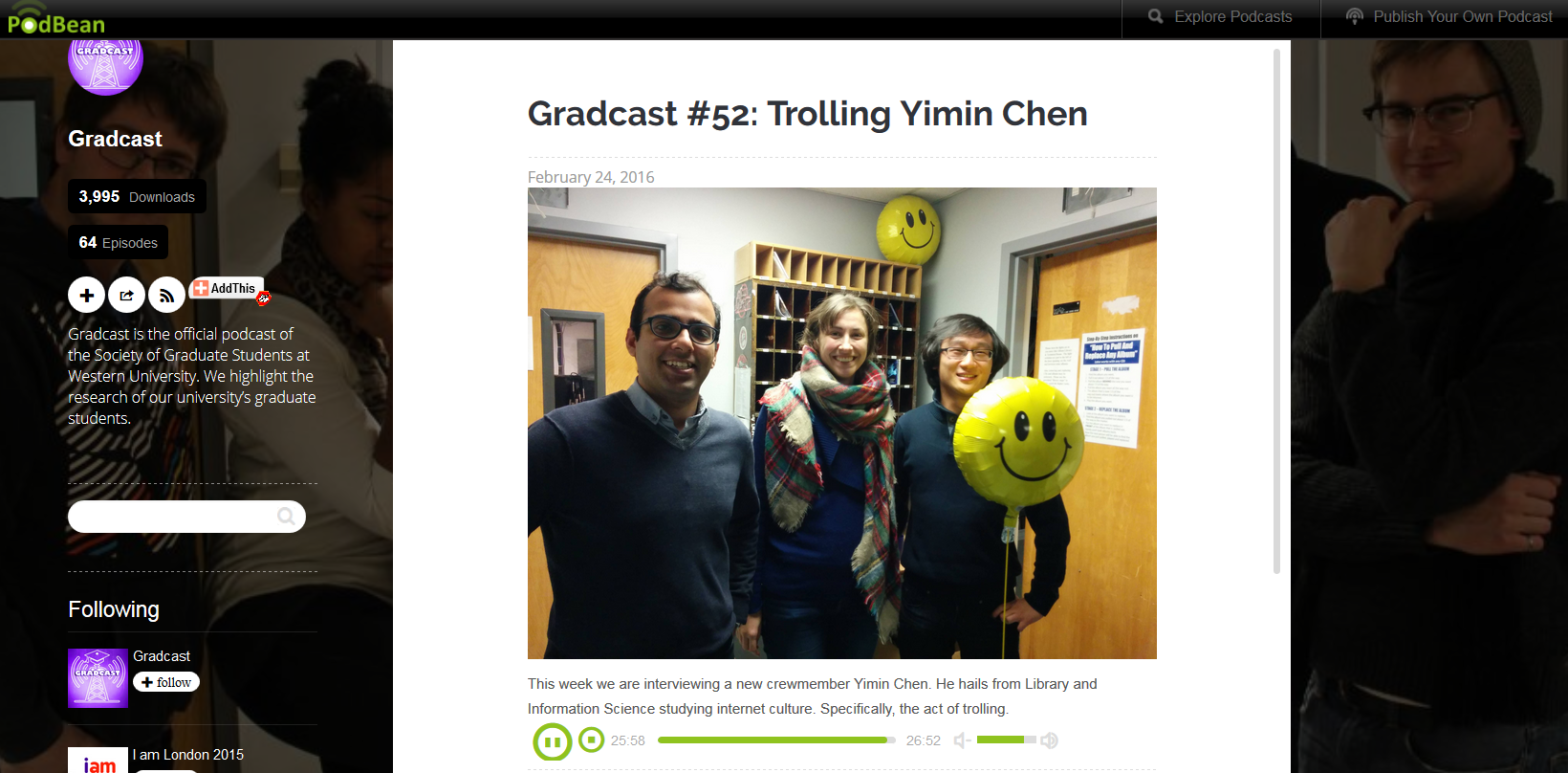In this podcast (http://gradcastradio.podbean.com/e/gradcast-52-trolling-yimin-chen/), LiT.RL lab team member, Yimin Chen, traces the history of internet trolling and explores some of the problematic implications of this controversial subject. Below is a brief description from Yimin.

“Broadly defined, “internet trolling” describes a spectrum of behaviours aimed at disrupting online communities and communications via inflammatory or provocative comments and actions. These behaviours can range from harmless jokes and teasing to criminal harassment and bullying. At its core, trolling is a deceptive act – trolls don’t necessarily believe the often outrageous things that they say, but are primarily interested in derailing conversations and instigating chaos by tricking unsuspecting victims into responding to their comments. The motivation is “for the lulz” – a sort of mean-spirited laughter or amusement at the expense of others.
Trolling is frequently identified as an undesirable activity in many online communities and has been implicated in the media as a contributing factor in several suicide cases. However, on the lighter side of the spectrum, trolling can also positively impact social group cohesion as a kind of play. This creative, mischievous trolling spirit has been an immensely inventive wellspring internet memes and culture.”
[Gradcast is the official podcast of the Society of Graduate Students at Western University. We highlight the research of our university’s graduate students.]
